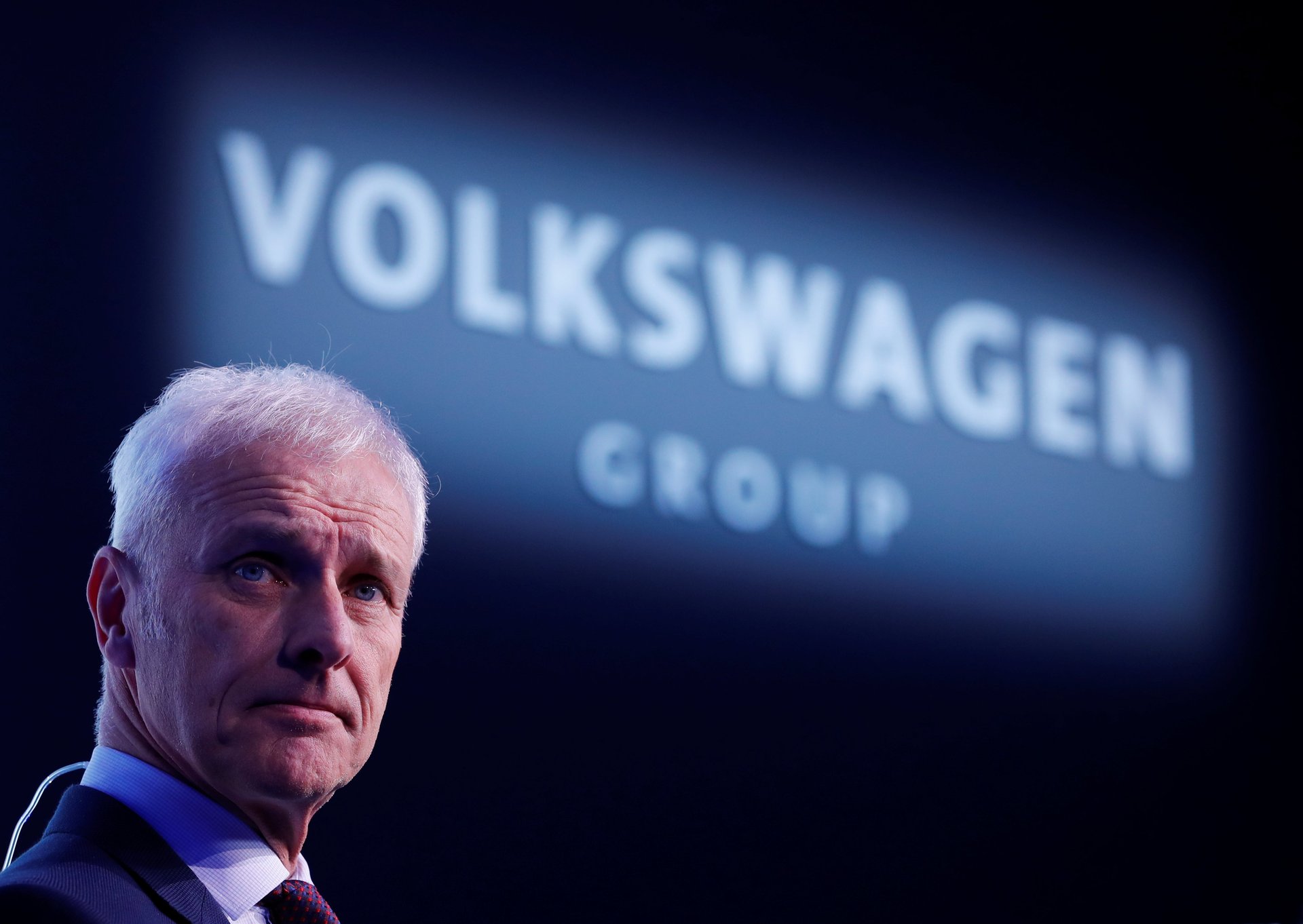VW CEO Matthias Müller could be gone by Friday
Volkswagen is gearing up to overhaul its top management—and that includes replacing CEO Matthias Müller, according to a report in the German business daily Handelsblatt.


Volkswagen is gearing up to overhaul its top management—and that includes replacing CEO Matthias Müller, according to a report in the German business daily Handelsblatt.
The announcement could come as early as Friday at the meeting of VW’s supervisory board, Handelsblatt said, citing shareholders’ wish for a fresh start after the diesel scandal. Herbert Diess, head of the Volkswagen’s namesake brand, is being touted as Müller’s replacement as group CEO.
VW told Quartz it was unable to comment on the news beyond what was stated in its press release on the subject, which notes the board will consider “further development of the management structure of the Group” when it meets on Apr. 10, and that this “could also include a change in the position of the board chairman.” It adds that Müller has indicated he is willing to “contribute to the changes.”
Müller, who started his career at Audi, and was CEO of Porsche, took over the reins of VW after its chief executive Martin Winterkorn swiftly resigned when the full wave of the enormous diesel-emissions-cheating scandal broke over the company in September 2015.
The 64-year-old has spent the last two-and-a-half years steering the world’s biggest car group through a seemingly endless procession of investigations and civil lawsuits, weathering fines of around $30 billion so far. And the bad news still keeps coming: In January, a New York Times report found that VW and other German carmakers had commissioned tests on monkeys, exposing them to toxic diesel fumes—the CEO had to apologise on behalf of the company again, calling the tests “unethical and repulsive.”
Yet, despite a crisis that seemed it should bring the company to its knees, the VW group posted record results in 2017, with sales revenue up more than 6% year-on-year, and operating profit almost doubling to $17 billion.
Müller raised eyebrows in March when he justified his 40% pay raise to more than €10 million ($12.3 million), telling Der Spiegel that he couldn’t understand the whole fuss about executives’ salaries, and this amount made up for the risk of having “one foot in jail.”
Müller, tasked with trying to restore the Wolfsburg car giant’s tarnished image, has launched a major push into electric vehicles. He announced recently that VW will invest $25 billion to develop electric or hybrid versions of all of its models by the end of this decade.
In the face of falling diesel sales—and despite VW’s obsessive commitment to the engines—Müller surprised many in December by saying that the German government should phase out its diesel fuel subsidies. “If the transition to environmentally friendly electric cars is to succeed, diesel combustion engines cannot be subsidized like before,” he told Handelsblatt.